Introduction
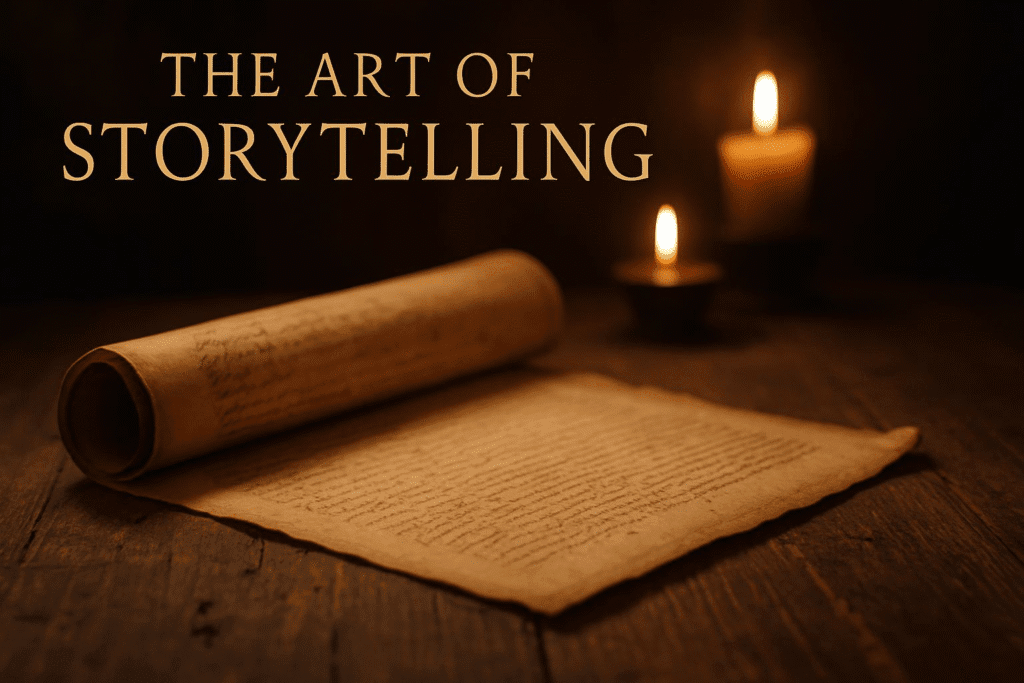
Stories have always been at the heart of human existence, shaping cultures, passing down wisdom, and connecting generations. From the mythic epics recited by ancient storytellers to sprawling novels that stretch across volumes, the art of storytelling reflects our enduring desire to capture the complexities of life. Some tales are short but leave lasting impressions, while others stretch endlessly, inviting us to lose ourselves in their depths.
There’s something uniquely captivating about long stories. They offer us a journey—a chance to walk alongside richly drawn characters, traverse worlds filled with intricate details, and witness events unfold on a grand scale. These narratives become more than just stories; they are experiences that stay with us long after the last page is turned.
In this blog, we set out to explore the longest story ever written and its place in literary history. Along the way, we’ll encounter other monumental works that have pushed the boundaries of storytelling. Together, let’s uncover the secrets behind these epics and understand why they continue to inspire, challenge, and enthral us.
From the ancient oral tales that connected communities to the novels that fill modern libraries, storytelling has been humanity’s bridge to understanding and imagination. Tales of love, struggle, adventure, and history have been passed down, not just to entertain but to preserve the essence of cultures and share the human experience.
Among these stories, the longest ones stand as literary mountains, challenging authors to stretch their creativity and testing readers’ commitment to delve deep into the narrative. These tales often become milestones of human achievement, showcasing both the depth of imagination and the endurance of storytellers who dare to venture into such expansive territory.
But long stories aren’t just about their word count or number of chapters—they’re about the lives they touch and the ideas they preserve. In this blog, we’ll uncover the longest story ever written, Devta by Mohiuddin Nawab, dive into other notable epics, and explore why long narratives hold such a lasting appeal. Get ready for a journey across the vast landscapes of literature’s most ambitious works.
What Defines the Length of a Story?
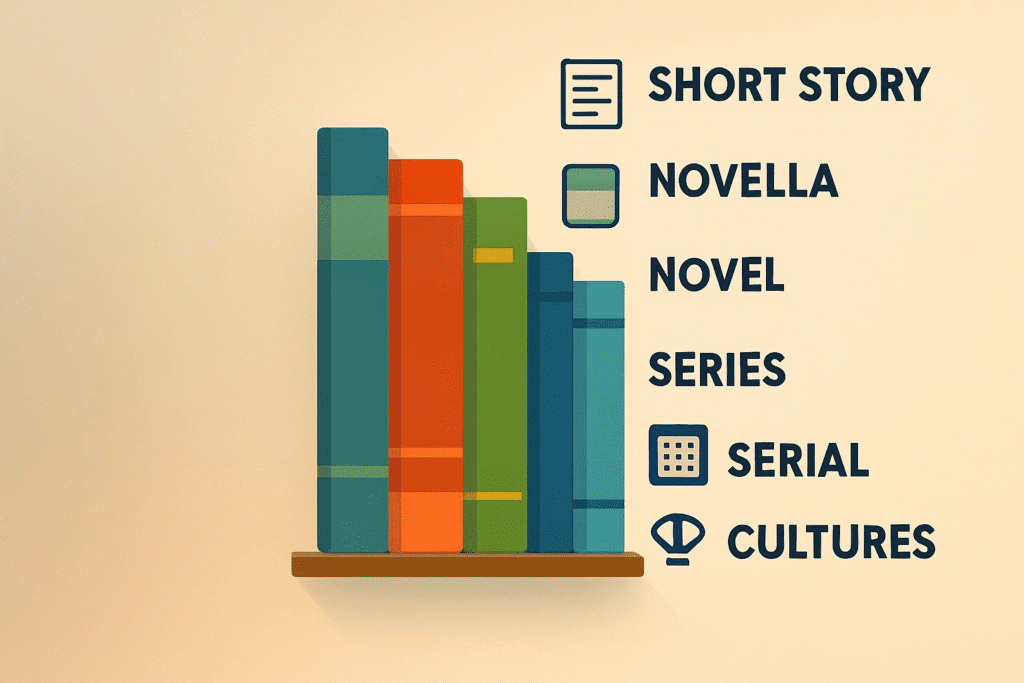
When it comes to determining the length of a story, the methods of measurement can vary. Unlike everyday books or novels, epic tales often challenge conventions, leaving readers to ask: what exactly makes a story “long”?
Word Count
The most common way to measure the length of a story is by its word count. Stories with millions of words, like serialized novels, often top the charts for length. For example, Mohiuddin Nawab’s Devta spans over 11 million words, making it the longest continuous fictional story ever written.
Volumes and Chapters
Some narratives extend their length through multiple volumes or countless chapters. Works like Marcel Proust’s In Search of Lost Time encompass multi-volume sagas that expand their storytelling scope over several installments. Each volume becomes a piece of a larger puzzle, creating a literary experience that stretches across hundreds of chapters.
Serialization Duration
In some cases, the length of a story is determined by how long it took to be written and published. For instance, serialized stories, published chapter by chapter in magazines or newspapers, can span decades. This format not only allows for extensive development but also engages readers over generations, making these stories feel even longer.
Cultural and Format Differences
Different cultures and storytelling formats also impact how we perceive the length of a story. In Japanese manga or Chinese web novels, length is often gauged by the number of volumes or episodes rather than just word count. Similarly, oral epics like The Mahabharata measure their length through verses rather than traditional pages.
In essence, the length of a story isn’t just about its size—it’s about how deeply it immerses its audience. Whether through sprawling word counts, episodic chapters, or enduring narratives, the definition of length in storytelling reflects the boundless creativity of its creators.
The Longest Story in History: Devta by Mohiuddin Nawab
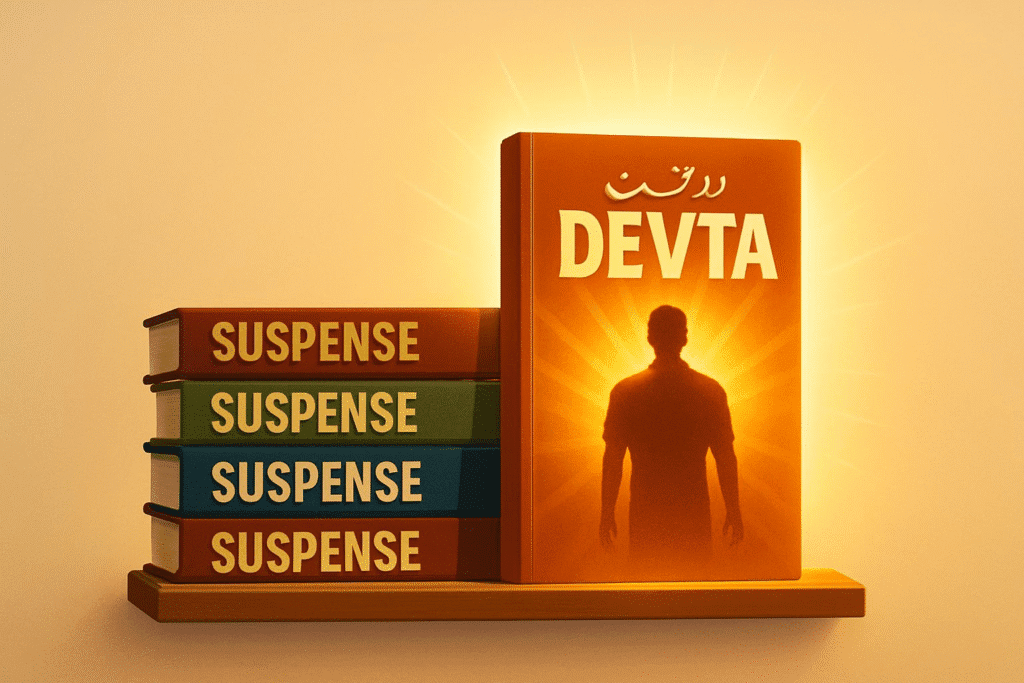
When it comes to the longest story ever written, Devta by Mohiuddin Nawab stands unparalleled. This Urdu serial novel, published over an astonishing 33 years, is a monumental achievement in the world of literature. Spanning more than 11 million words and 56 volumes, Devta is a testament to the dedication and creativity of its author.
The Story of Devta
At the heart of Devta is the fictional autobiography of Farhad Ali Taimur, a man gifted with telepathic powers. The story begins with Farhad as a teenager living in Shahdara, a small town near Lahore, Pakistan. As the narrative unfolds, Farhad’s abilities lead him into a world of espionage, power struggles, and moral dilemmas. The novel explores themes of love, betrayal, and the complexities of human nature, all while weaving in elements of fantasy and adventure.
A Cultural Phenomenon
Serialized in the Pakistani monthly magazine Suspense Digest from 1977 to 2010, Devta became a cultural phenomenon. Readers eagerly awaited each new installment, making it one of the most popular and enduring stories in Urdu literature. Its conversational style and relatable characters resonated with audiences, ensuring its place as a landmark in storytelling.
Why It’s the Longest Story
The sheer length of Devta is staggering. With over 11 million words, it surpasses other lengthy works like Marcel Proust’s In Search of Lost Time and Anthony Powell’s A Dance to the Music of Time. Its serialization over three decades allowed Nawab to develop an intricate and expansive narrative, making it the longest continuous fictional story ever written.
Legacy of Devta
Devta is more than just a story—it’s a piece of literary history. It showcases the power of serialized storytelling and the enduring appeal of epic narratives. For fans of Urdu literature, it remains a masterpiece that continues to inspire and captivate new generations of readers.
Other Remarkably Long Stories
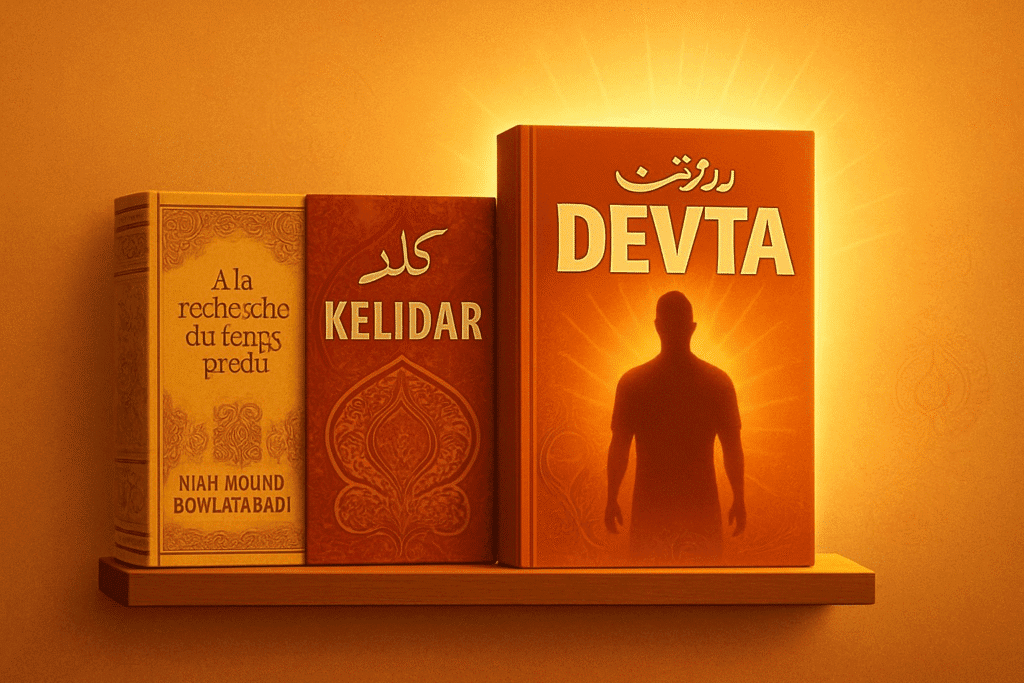
While Devta holds the record for the longest continuous fictional story, other literary works have also pushed the boundaries of storytelling with their extraordinary lengths. These monumental tales, spanning millions of words and multiple volumes, showcase the diversity and ambition of epic narratives.
1. À la recherche du temps perdu by Marcel Proust
Translated as In Search of Lost Time, this French masterpiece is one of the longest novels ever written, with an estimated word count of 1.3 million. Published in seven volumes between 1913 and 1927, Proust’s work delves into themes of memory, time, and human relationships, offering readers a deeply introspective journey.
2. Kelidar by Mahmoud Dowlatabadi
This Persian novel, written by Iranian author Mahmoud Dowlatabadi, spans over 950,000 words across ten volumes. Set in rural Iran, Kelidar explores the lives of a Kurdish family and their struggles, painting a vivid picture of Iranian society and culture.
3. A Dance to the Music of Time by Anthony Powell
This twelve-volume series, published between 1951 and 1975, is a sprawling narrative that chronicles the lives of its characters over several decades. With a word count of approximately 1 million, Powell’s work is celebrated for its wit, social commentary, and intricate character development.
4. Zettels Traum by Arno Schmidt
This German novel, translated as Bottom’s Dream, is a linguistic and literary experiment. With over 1.1 million words, it is known for its unconventional structure and dense prose, making it a challenging yet rewarding read for those who dare to explore its depths.
5. The Mahabharata
An ancient Indian epic, The Mahabharata is one of the longest poems ever written, with over 200,000 verses. While its exact word count is debated, it is estimated to be around 1.8 million words. This monumental work combines mythology, philosophy, and history, offering profound insights into human nature and morality.
These stories, though varied in style and content, share a common thread: their ability to immerse readers in expansive worlds and narratives. They stand as testaments to the power of storytelling and the dedication of their creators.
Why Do Long Stories Captivate Us?
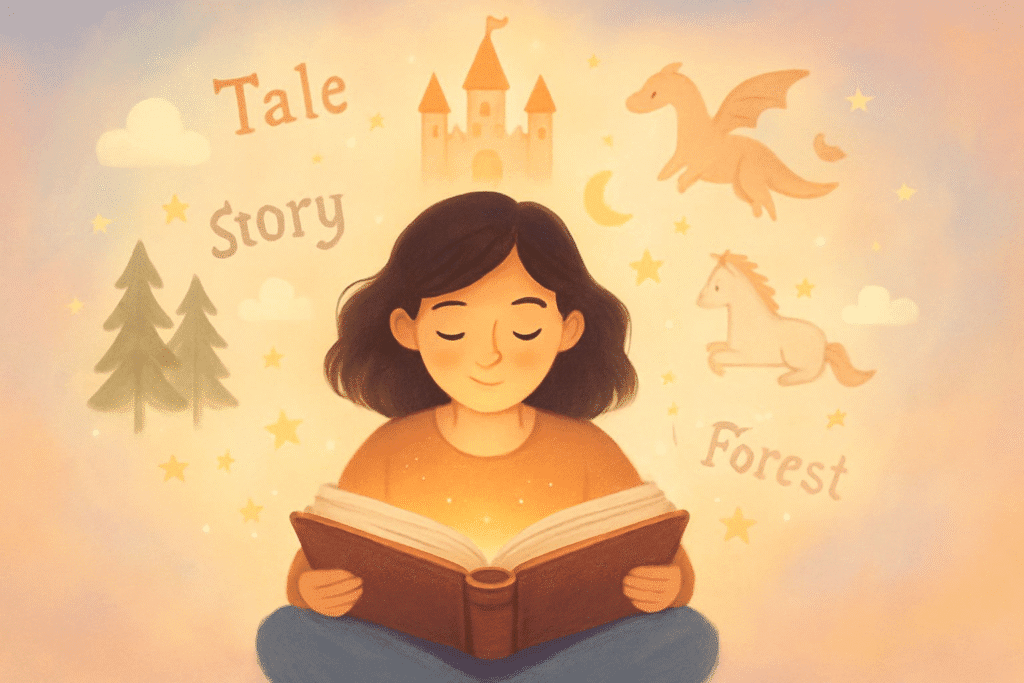
There’s something undeniably magical about losing yourself in a long story. These sprawling narratives offer a level of depth and immersion that shorter tales often can’t achieve. But what is it about epic, extensive stories that makes them so compelling?
Immersive World-Building
Long stories have the luxury of time and space to build intricate worlds. Whether it’s the richly detailed settings of fantasy epics or the vividly portrayed realities of historical sagas, these narratives allow readers to fully inhabit the story’s universe. The length of the story gives authors the opportunity to flesh out every detail, making the world feel authentic and lived-in.
Deep Character Development
With thousands or even millions of words to work with, authors can create complex characters who evolve over time. Readers get to witness their triumphs, failures, and growth in a way that feels organic and real. This deep connection with characters often makes long stories unforgettable, as readers invest emotionally in their journeys.
A Journey, Not a Destination
Epic stories are less about the conclusion and more about the journey. The length allows for unexpected twists, subplots, and layers of meaning to unfold gradually. This journey-like experience mirrors life itself, with its meandering paths and evolving narratives.
The Challenge and Reward
There’s a sense of accomplishment that comes with finishing a long story. For readers, tackling an epic novel or series can feel like climbing a mountain—challenging but immensely rewarding. Completing such a story leaves a lasting impression and a deep appreciation for the craft behind it.
Cultural and Historical Insight
Long stories often reflect the times and cultures in which they were written. Epics like The Mahabharata provide glimpses into ancient societies, their beliefs, and their values. Even modern long-form stories capture the zeitgeist of their eras, preserving cultural snapshots for future generations.
Ultimately, long stories captivate us because they invite us into a world we don’t want to leave. Their depth, complexity, and scope make them journeys worth taking—ones we carry with us long after the final word
Conclusion
Stories are more than just collections of words—they are vessels of imagination, culture, and history. Long stories, with their sprawling narratives and intricate details, stand as monuments to the art of storytelling, inviting readers to embark on unforgettable journeys through worlds that stretch across time and space.
The longest story in history, Devta by Mohiuddin Nawab, epitomizes this legacy. Its unparalleled length is a testament to the dedication and passion of its creator and the unwavering engagement of its readers. Alongside Devta, other monumental tales—whether ancient epics like The Mahabharata or literary masterpieces by authors like Proust—showcase the diversity and depth of long-form storytelling.
These epic narratives remind us of the power of stories to connect us with characters, cultures, and ideas. They challenge us to immerse ourselves in their complexity and to savor every moment of the journey. Whether written across decades or preserved for centuries, long stories continue to captivate and inspire, proving that their length is matched only by their impact.
Let this blog encourage you to dive into the world of epic tales, to explore their intricacies, and to appreciate the timeless craft of storytelling in its grandest form.
FAQ’s
What is the longest story ever written?
The record for the longest story ever written belongs to Devta by Mohiuddin Nawab. Spanning over 11 million words and serialized for 33 years, it is a monumental achievement in literature.
2. How is the length of a story measured?
The length of a story can be determined through various criteria, such as word count, the number of volumes or chapters, and serialization duration. Cultural contexts and storytelling formats also influence these measurements, making length a relative concept.
Are long stories always better?
Not necessarily. While long stories allow for deeper exploration of themes and characters, they can sometimes suffer from unnecessary digressions or a lack of focus. A well-told story, regardless of length, is what truly captivates audiences.
What are some famous long stories?
Apart from Devta, other notable long stories include Marcel Proust’s In Search of Lost Time, the Persian epic Kelidar, and the ancient Indian epic The Mahabharata. Each offers a unique narrative style and cultural significance.
Why do authors write long stories?
Authors often write long stories to fully explore their ideas, develop their characters, and build detailed worlds. Serialization, popular in many cultures, also allows authors to engage readers over extended periods and delve into complex narratives.
